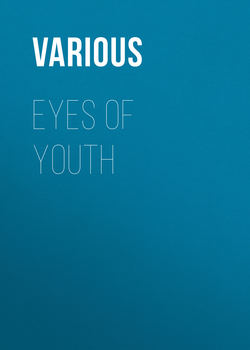Читать книгу Eyes of Youth - Various - Страница 1
FOREWORD
ОглавлениеMy office on this occasion is one which I may well carry as lightly as possible. In our society, I am told, one needs an introduction to a beautiful woman; but I have never heard of men needing an introduction to a beautiful song. Prose before poetry is an unmeaning interruption; for poetry is perhaps the one thing in the world that explains itself. The only possible prelude for songs is silence; and I shall endeavour here to imitate the brevity of the silence as well as its stillness.
This collection contains four new poems by one whom all serious critics now class with Shelley and Keats and those other great ones cut down with their work unfinished. Yet I would not speak specially of him, lest modern critics should run away with their mad notion of a one-man influence; and call this a "school" of Francis Thompson. Francis Thompson was not a schoolmaster. He would have said as freely as Whitman (and with a far more consistent philosophy), "I charge you to leave all free, as I have left all free." The modern world has this mania about plagiarism because the modern world cannot comprehend the idea of communion. It thinks that men must steal ideas; it does not understand that men may share them. The saints did not imitate each other; not always even study each other; they studied the Imitation of Christ. A real religion is that in which any two solitary people might suddenly say the same thing at any moment. It would therefore be most misleading to give to this collection an air of having been inspired by its most famous contributor. The little lyrics of this little book must surely be counted individual, even by those who may count them mysterious. A variety verging on quaintness is the very note of the assembled bards.
Take, for example, Mr. Colum's stern and simple rendering of the bitter old Irish verses:
"O woman, shapely as the swan,
On your account I shall not die."
Like Fitzgerald's Omar and all good translations, it leaves one wondering whether the original was as good; but to an Englishman the note is not only unique, but almost hostile. It is the hardness of the real Irishman which has been so skilfully hidden under the softness of the stage Irishman. The words are ages old, I believe; they come out of the ancient Ireland of Cairns and fallen Kings: and yet the words might have been spoken by one of Bernard Shaw's modern heroes to one of his modern heroines. The curt, bleak words, the haughty, heathen spirit are certainly as remote as anything can be from the luxuriant humility of Francis Thompson.
If the writers have a real point of union it is in a certain instinct for contrast between their shape and subject matter. All the poems are brief in form, and at the same time big in topic. They remind us of the vivid illuminations of the virile thirteenth century, when artists crowded cosmic catastrophes into the corner of an initial letter; where one may find a small picture of the Deluge or of the flaming Cities of the Plain. One of the specially short poems sees the universe overthrown and the good angels conquered. Another short poem sees the newsboys in Fleet Street shouting the news of the end of the world, and the awful return of God. The writers seem unconsciously to have sought to make a poem as large as a revelation, while it was nearly as short as a riddle. And though Francis Thompson himself was rather in the Elizabethan tradition of amplitude and ingenuity, he could write separate lines that were separate poems in themselves:—
"And thou, what needest with thy tribe's black tents,
Who hast the red pavilion of my heart?"
A mediaeval illuminator would have jumped out of his sandals in his eagerness to illustrate that.
G.K. CHESTERTON.
